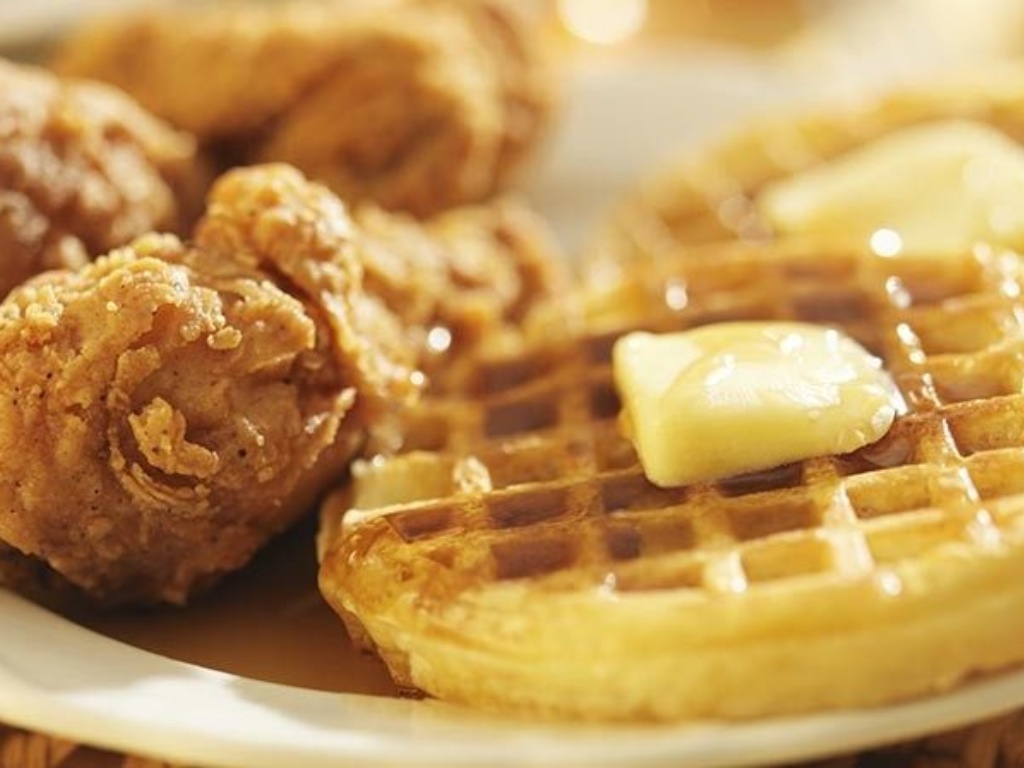Take the ‘A’ train uptown to visit a side of Manhattan many visitors skip. Harlem is the USA’s most famous African-American community and the cultural capital of black America.
The Harlem Renaissance of the 1920's and 30's – a movement which saw the blossoming and wider recognition of African-American literary, musical and political culture through the talents of artists like Billie Holiday, Paul Robeson and Duke Ellington – continues to resonate today. It also forms a cornerstone of the neighbourhood’s tourism industry, with visitors hoping to get a feel for Harlem’s heyday by immersing themselves in a culture of jazz, gospel, blues and soul food.
Despite the area falling on hard times and becoming blighted by urban decay in the 20th century’s latter decades, 21st century Harlem’s star is once again on the rise. New shops and businesses are opening weekly, gorgeous 19th century brownstones and other abandoned buildings are being restored, and the last few years have seen a flurry of new galleries and museums. Here’s our pick of the best reasons to visit…
Discover historic Harlem venues
Harlem has been home to some of America’s most legendary venues and the best way to learn about their cultural significance is on a walking tour with Harlem Heritage Tours, whose guides are all Harlem-born and raised. Choose from itineraries which focus on civil rights, food or musical themes, and discover the Renaissance-era glory days of the Apollo Theater – still hosting its famous ‘Amateur Night’ every Wednesday. You’ll also see the site of the original Savoy Ballroom where a teenage Ella Fitzgerald became house vocalist after winning said Amateur Night at the Apollo, plus the original location of the famous Cotton Club and its current incarnation on 125th Street – along with plenty of other lesser-known speakeasies, jazz clubs and notable residences.
Eat classic soul food
For a sweet ‘n sticky soul food fix, you’re in the right part of town. Harlem is an epicentre of soul food dining, and the obvious place to start is at Sylvia’s restaurant on Lenox Avenue, run for 50 years by Sylvia Woods (who passed away in July 2012) and her family. The restaurant – in which Sylvia worked as a waitress before purchasing in 1962 – starred in Spike Lee’s 1991 film Jungle Fever, and has been frequented over the years by a mix of tourists, locals and many celebrities, whose pictures plaster the walls – Diana Ross, Bill Clinton, Quincy Jones, Robert Kennedy and Muhammed Ali among them. We recommend not eating for about a week before you visit, then attacking the menu with gusto. Take your pick of fried chicken with waffles, smothered pork chops, garlic mash, candied yams and collard greens, and don’t forget to wash it all down with a pitcher of sweet iced tea.
Other places to try for real-deal Harlem soul food include Amy Ruth’s on West 116th Street, probably the second most well-known establishment after Sylvia’s, with fewer tourists and more of a local vibe. Also check out Jacob Soul Food Restaurant and Salad Bar on Lenox Avenue, and Red Rooster for a more contemporary update on the scene, also on Lenox.

Take a jazz or gospel tour
A tour of Harlem’s clubs and juke joints with New York jazz buff Gordon Polatnick of Big Apple Jazz Tours will give you an insight into NY’s jazz scene you’d be hard-pushed to find anywhere else. You’ll also get the opportunity to visit lesser-known venues, hand-picked neighbourhood haunts and even join a session as a singer or soloist, if you fancy your chances with the best. There are plenty of different tour types available, including the intimate ‘Harlem Juke Joint Tour’ where you’ll head to a couple of hidden hole-in-the-wall venues and a speakeasy dating back to Prohibition.
Harlem Spirituals organise gospel tours on Sundays and Wednesdays, with brunch or lunch included, plus the opportunity to attend a worship service in a local church and experience an uplifting live gospel choir.
Finally, if you’re in town on a Sunday, make the pilgrimage up to the north Harlem neighbourhood of Washington Heights and attend one of Marjorie Eliot’s weekly Parlor Jazz sessions which she’s been holding in the living room of her apartment for more than 20 years – a truly unique New York experience. Proceedings kick off every Sunday at 4pm, apartment 3F, 555 Edgecombe Avenue – free to all, but get there early. Most seats are taken by about 3.30pm.
Discover Harlem’s underrated stores
It’s not known as one of Manhattan’s must-visit shopping destinations, but there are some great shops and boutiques in Harlem if you know where to look. Sneaker freak? Those in the know head to atmosNYC for an unrivalled selection of running, basketball, skate and casual sneakers, plus unique collaborations with some of the major manufacturers that you won’t find anywhere else. For West African-inspired beauty products, head to Sade Skincare on Lexington Avenue. Harlem Underground stocks an amazing collection of Harlem and music-themed t-shirts. Finish up at Lenox Coffee for a well-deserved break from pounding the streets.
Visit Harlem’s museums
Harlem has two museums really worth a visit. The intimate Studio Museum, close to the 125th Street subway stations, is dedicated to African-American, African, and Caribbean art and objects. Permanent collections include almost two thousand paintings, photographs and sculptures dating from the 19th century to the present day.
The National Jazz Museum in Harlem states that outside of New Orleans, no community has nurtured jazz more than Harlem. With jazz still the lifeblood and soundtrack of the community, the museum aims to foster the spirit of this music well into the future, as well as honour its past. The museum is far more about music than artefacts, and prefers to educate visitors with a weekly programme of free events and concerts, and is home to an extensive archive of lost recordings. Join one of the free Jazz for Curious Listeners sessions, or check the calendar for who’s playing.
Where to stay
If you want to spend some time soaking up all Harlem has to offer, there’s no need to base yourself in midtown Manhattan or beyond – the best hotel in Harlem is far more affordable than many midtown options. Aloft Harlem opened at the end of 2010, the first new hotel to open here since the late 1960s, and has rapidly gained a reputation as a great place to hang out in its own right. A hip, young-at-heart offshoot of the W brand, the Aloft spinoffs pride themselves on their social lobby scenes and the Harlem outpost is no exception. The friendly W XYZ bar is manned by chatty, in-the-know staff who’ll keep you talking all night, though you’ll probably be challenged to a game of pool or asked if you want to join the pub quiz.
Rooms are sleek and contemporary, with nine foot high ceilings, plush supersized bed, a full length wooden desk for working and added touches like vintage alarm clocks and retro-style artwork. No bathtubs here, but the huge walk-in rainshowers and Bliss Spa amenities feel luxurious.
Back downstairs is a 24/7 fresh food-on-the-go area; a one-stop shop for refueling at your convenience. Regardless of the time you arrive or leave, you can pick up anything from a coffee and muffin, sandwich, salad or other gourmet snack. Simply take your pick, swipe your room key and the charge will be added to your bill. There’s also a fully equipped swipe-access gym.
As a member of the Starwood Group, Virgin Atlantic Flying Club members staying at Aloft Harlem earn miles with every stay.
Written by Maxine Sheppard



